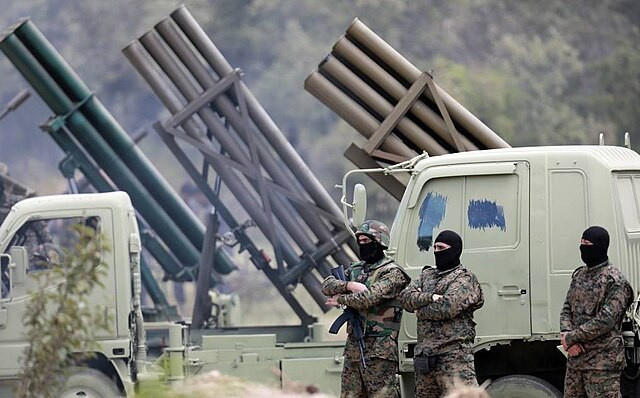Hezbollah, the Iran-backed militant group based in Lebanon, has suffered a significant blow following the rapid fall of Syrian President Bashar al-Assad's regime. The collapse of Assad's government has severed a crucial military supply route through Syria, a pipeline that Hezbollah relied on for arms and equipment from Iran. Naim Qassem, Hezbollah's leader, confirmed the loss in a televised address, characterizing it as a "small detail" in the group's broader resistance operations but acknowledged its implications for the organization's strategy.
"Yes, Hezbollah has lost the military supply route through Syria at this stage," Qassem said. "But this loss is a detail in the resistance's work. A new regime could come, and this route could return to normal, and we could look for other ways."
The fall of Assad marks a significant setback for Iran's broader influence in the region, disrupting what has been referred to as the "axis of resistance" composed of Iran and its proxy groups, including Hezbollah, Hamas, and militias in Iraq and Yemen. Assad's regime had provided a vital link in the chain, enabling the transfer of weapons and personnel from Tehran to Beirut via Iraq and Syria.
The loss of the Syrian corridor is particularly damaging for Hezbollah, which has already been weakened by 14 months of war with Israel. The group's military infrastructure has been decimated by Israeli airstrikes, and many of its senior leaders, including its long-time figurehead Hassan Nasrallah, were killed during the conflict.
In addition to its military setbacks, Hezbollah now faces significant challenges in Lebanon. Calls for the group's disarmament have grown louder as the Lebanese army begins to reassert control over areas previously dominated by Hezbollah, including the southern border. Samir Geagea, leader of the Christian Lebanese Forces Party, declared, "To Hezbollah, it's game over. Sit with the Lebanese military to end your status as an armed group and transform yourselves into a political party."
The group's political standing is also in jeopardy. With much of its infrastructure in ruins and its supply lines severed, even some of Hezbollah's allies in Lebanon have started distancing themselves. Gebran Bassil, a parliamentarian from the Free Patriotic Movement and a former ally, suggested that Hezbollah focus on internal Lebanese issues rather than regional conflicts.
For Israel, the fall of Assad represents a strategic victory. Israeli Prime Minister Benjamin Netanyahu called it a "historic day" and attributed the development to Israel's military campaign against Hezbollah and Iran.It was "the direct result of our forceful action against Hezbollah and Iran, Assad's main supporters," Netanyahu said.
Analysts warn, however, that the power vacuum left by Assad's ouster could pose its own risks. Hayat Tahrir al-Sham, a former al-Qaeda affiliate, has emerged as a key player in Syria, leading the rebel coalition that toppled Assad and forming a transitional caretaker government. While Hezbollah's influence has waned, the rise of extremist groups in Syria presents new challenges for both Israel and the broader region.
Despite these challenges, Hezbollah remains defiant. Qassem hinted that the group could adapt to the new circumstances, exploring alternative supply routes and recalibrating its strategies. "We hope that the new rule in Syria will consider Israel an enemy and will not normalize ties with it," he said, underscoring the group's ongoing commitment to its anti-Israel stance.
With Iran losing its direct land corridor to Lebanon, Hezbollah's operational capacity is expected to diminish significantly. Experts say smuggling operations or limited air routes could replace the lost Syrian pipeline, but these methods lack the scale and efficiency of the former supply network.




